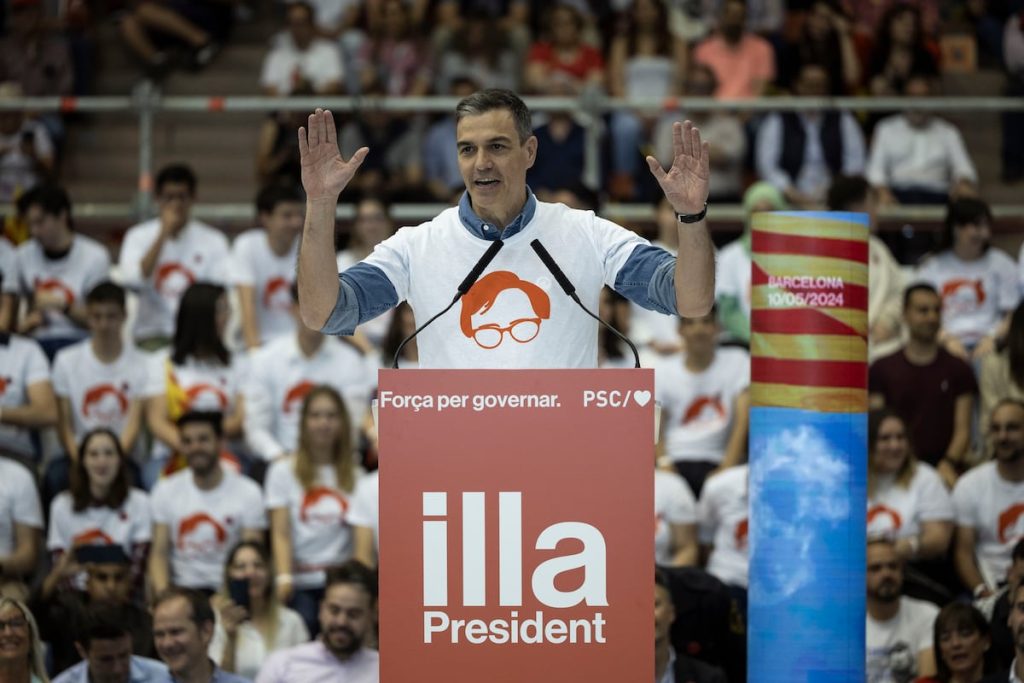The enthusiasm of the supporters roared as Pedro Sánchez and Salvador Illa entered the Vall D’Hebron pavilion in Barcelona, located in a working-class neighborhood that has always been a stronghold for the Socialists. However, among the leaders, there was a mix of excitement at the prospect of a historic outcome for their candidate and a cold sweat facing an unexpected surge from Junts in the final stretch, which could complicate not only governance in Catalonia but also Sánchez’s term. A strong Junts party with a weakened ERC is a delicate scenario for the Government, although it is deemed unlikely that anyone can oust Sánchez, and the independence movement needs the Government as much as the Executive needs them.
According to a survey by the Center for Sociological Research (CIS), a significant percentage of voters from both ERC and Junts parties wish for Sánchez to be president. This interdependence between the parties could potentially change the dynamics of negotiations, leading to discussions about the complete collection of taxes in Catalonia similar to the Basque Country model. Despite concerns from the Government about Junts’ potential rise, conversations and dialogues will continue post-election to ensure the stability of Sánchez’s term.
In the midst of the campaigns, unexpected shifts have occurred, such as Feijóo from the PP engaging in a tough stance against immigration to appeal to Vox voters. In contrast, Sánchez has emphasized the importance of diversity and immigrants’ contribution to society, receiving applause at rallies. The PP, focusing on strategies for the upcoming European elections, plans to highlight the issue of amnesty and make a case against Sánchez. Meanwhile, the socialists welcome Feijóo’s shift towards the right in Catalonia, as it aligns with Sánchez’s narrative on “concord laws” rejected by UN rapporteurs.
Yolanda Díaz, leader of Sumar, has intensified efforts to prevent the decline of their allies, the Comunes, in the face of declining poll numbers. Sumar is pressing the PSOE to implement coalition agreements promptly, to kick-start the legislative agenda without delay after the series of elections. As all national parties focus on Catalonia, each has its own risks and hopes, with Sánchez being the most reliant on the outcome in Catalonia to secure his term and stability. The results of the election will have significant implications for the national political landscape, with the outcome likely shaping the future of the legislative term.


